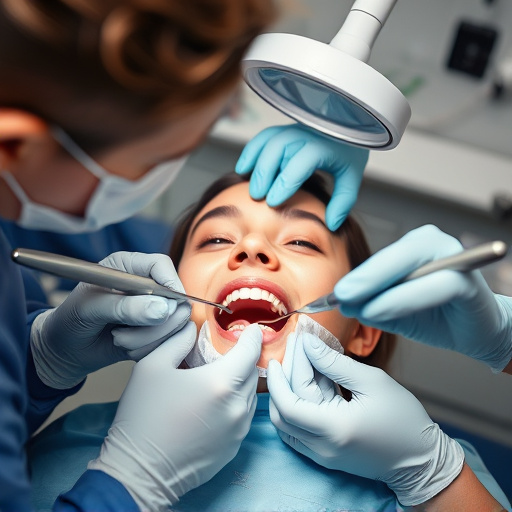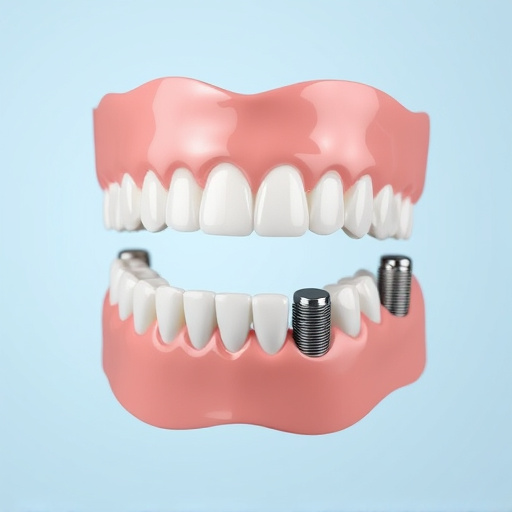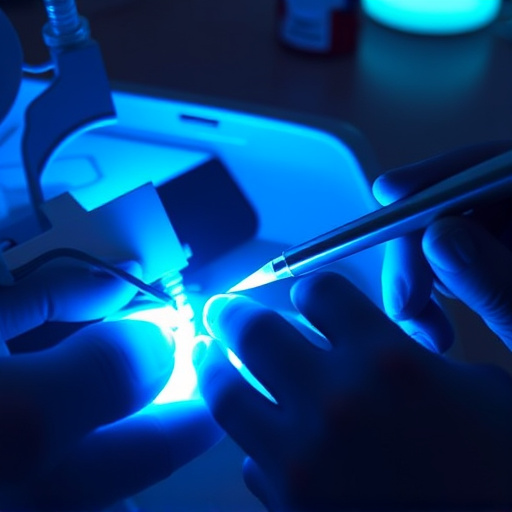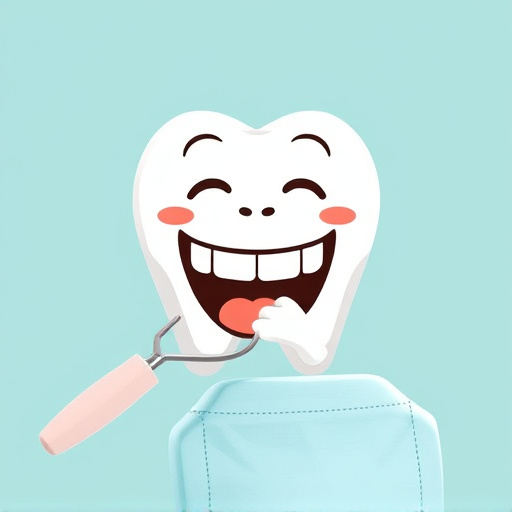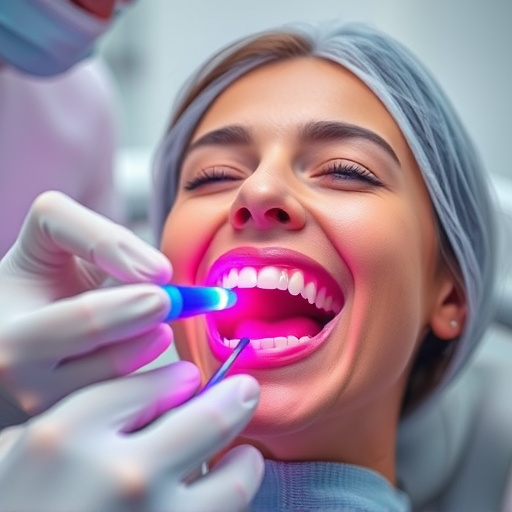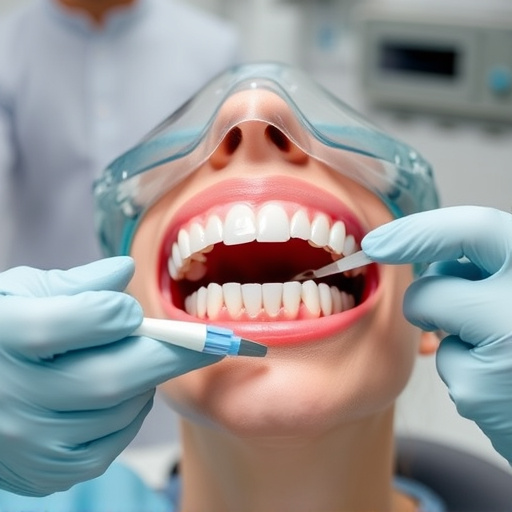Oral cancer, with tobacco use, alcohol, UV radiation, previous head/neck cancer, and age as risk factors, requires awareness of early signs for effective prevention and treatment. Regular oral cancer screenings by dentists during routine check-ups are vital for early detection, improving survival rates and enabling less invasive treatments.
Oral cancer screening is a vital preventive measure that can save lives. Despite its hidden nature, oral cancer affects thousands each year. Understanding its risk factors and symptoms is crucial. This article explores why regular screening is essential for early detection – a key to successful treatment and preventing deadly outcomes. Learn how simple, non-invasive screenings can make a significant difference in your health and well-being.
- Understanding Oral Cancer: Risk Factors and Symptoms
- The Role of Early Detection in Treatment Success
- How Regular Screening Can Prevent Deadly Outcomes
Understanding Oral Cancer: Risk Factors and Symptoms

Oral cancer, a silent yet deadly threat, affects thousands of individuals worldwide each year. Understanding its risk factors and early symptoms is key to successful prevention and treatment. While anyone can develop oral cancer, certain factors significantly increase the likelihood. These include tobacco use (smoking or chewing), excessive alcohol consumption, exposure to UV radiation, and a history of head or neck cancer. Age is also a factor; the risk tends to rise with age, especially after 40.
Symptoms may vary but can include persistent mouth sores, unusual bleeding in the mouth, swollen lymph nodes, and changes in the appearance of teeth and gums. In some cases, patients might experience difficulty swallowing or chewing, as well as a sore throat that doesn’t heal. Regular oral cancer screenings by a general dentistry professional are crucial for early detection, which significantly improves outcomes. Preventive dentistry plays a vital role here, with routine check-ups and examinations enabling the identification of potential issues before they escalate, including unnecessary tooth extractions.
The Role of Early Detection in Treatment Success
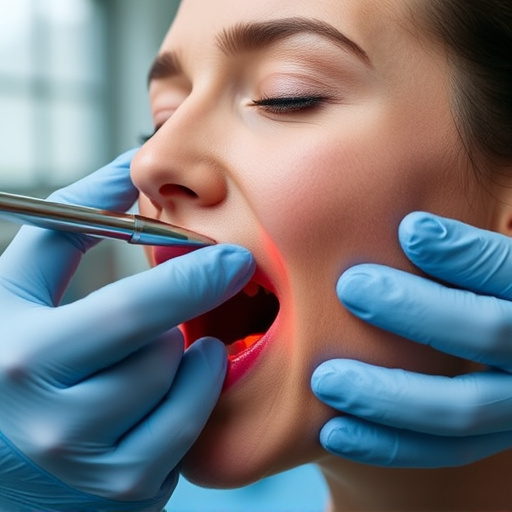
Early detection plays a pivotal role in the successful treatment of oral cancer. Regular oral cancer screenings are essential because they allow dentists to identify any suspicious abnormalities or precancerous lesions at an early stage. This is crucial, as oral cancer often presents few symptoms in its initial phases, making self-detection challenging. When caught early, treatment outcomes significantly improve. The survival rates for patients diagnosed with oral cancer before it has spread are remarkably higher compared to those discovered at later stages.
During a general dentistry check-up or family dentistry visit, oral cancer screenings are typically included as part of the routine examination. Dentists use specialized tools and techniques to visualize areas that may be difficult to see during regular tooth inspections. This proactive approach enables prompt action if any issues are identified, potentially saving lives by facilitating effective tooth repair or cancer treatment before it advances.
How Regular Screening Can Prevent Deadly Outcomes

Regular oral cancer screening is a life-saving preventive measure that plays a crucial role in detecting potential risks early on. Many cases of oral cancer go unnoticed until advanced stages, leading to severe and often deadly outcomes. By incorporating routine dental check-ups and screenings into your healthcare regimen, you can ensure timely detection of any abnormalities or precancerous lesions within the mouth.
Oral cancer screening involves a simple, non-invasive process during your regular dental cleanings. Dentists use advanced techniques and tools to examine your mouth for any signs of unusual growths, discolored patches, or texture changes. Early detection through these screenings can significantly improve treatment outcomes, as it allows for less invasive procedures and increases the chances of successful recovery. Moreover, regular screenings can help identify potential issues that might otherwise go unnoticed, even by an individual, thereby promoting proactive healthcare.
Oral cancer screening is a simple yet powerful tool that can save lives. By identifying potential risks and symptoms early on, medical professionals significantly improve treatment outcomes. Regular screenings play a crucial role in preventing deadly outcomes and ensuring better quality of life for patients. Don’t underestimate the importance of oral health; schedule a screening today to stay ahead of any potential risks.






